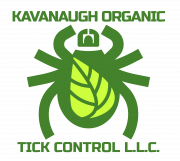Mosquitoes
You might be surprised to learn that the deadliest animal in the world is more than likely hanging out in your very own backyard. Surprisingly, mosquitoes account for approximately 750,000 deaths per year worldwide, according to estimates. While mosquito deaths in the United States are a very rare occurrence, the CDC states that as recently as 2018, there were an estimated 167 deaths in the United States, 6 of those deaths were in New York.
What We Do
There isn’t a silver bullet for Mosquito treatment. Mosquito control requires an Integrated Pest Management strategy that includes both source reduction and the use of pesticides. Since mosquitoes breed and develop in water, source reduction targets and eliminates water sources favorable for mosquito breeding. While source reduction is a safe, effective long-term approach to mosquito treatment, we recommend our applications to deter mosquitoes from coming into your property, and to eliminate mosquitoes that lurk in your yard.
Treatment Options
Barrier Spray: The barrier spray treatment system kills active adult mosquitoes and their larvae and acts as a deterrent for mosquitoes looking to venture into the property. Our licensed technicians will pay extra attention to mosquito “hotspots” on your property, including cool, damp and shady areas, such as lower branches of trees, beneath tree canopies, along building foundations, underneath decks and in tall grasses, thick shrubs and wood piles. Our organic treatment is effective for up to 21 days.
“TFM” Package: Our complete Tick, Flea, Mosquito treatment package combines our two signature products to target a larger range of pests, and enhances the knockdown and repellant effect on your property.
Our TFM treatment covers your entire property! Call us now at 631-939-9799 or 516-226-3811 for a FREE ESTIMATE!
MOSQUITO-BORNE DISEASE
Zika Virus: This virus is a relatively new disease, with typical symptoms including fever, skin rash, and conjunctivitis that typically last less than a week. A connection between Zika and birth defects is currently under investigation. Thankfully, according to the CDC, there were no reported cases of Zika Virus in the United States in 2019.
West Nile Virus (WNV): First found in Uganda in 1937, the WNV has spread globally. Its flulike symptoms include fevers, headaches, and body aches. More severe symptoms include disorientation, muscle weakness, neck stiffness and even death!
Encephalitis (EEE): Encephalitis also known as Triple E, is the inflammation of the brain. that starts as a virus and can invade the central nervous system. Eastern Equine Encephalitis (EEE) is the most common encephalitis and can affect humans and horses. Encephalitis was first found in the United States in 1831, in Massachusetts. According to the CDC, while the disease is extremely rare in the United States, approximately 33% of those infected will die.
Dog Heartworm: This parasitic roundworm infects dogs, cats and other animals. The heartworm takes residence in the host’s heart as it grows. It is a significant concern in dogs, as nearly 250,000 canines are treated per year.
Malaria: Malaria is a mosquito-borne infectious disease that affects both humans and animals. While mostly eradicated in the United States, malaria continues to kill millions in Africa each year. Malaria is both preventable and treatable. While typical symptoms include fever, vomiting, tiredness and headaches, in severe cases Malaria can cause jaundice, seizures, coma and death. Just in 2018, 405,000 deaths were attributed to this disease.
Chikungunya: This mosquito-borne illness causes similar symptoms as the Zika virus. Common symptoms include fever, joint pain, headaches, rash, and swelling. As of November 5th, there have been 18 recorded cases of chikungunya in the United States according to the CDC. There is currently no vaccine for chikungunya.
Yellow Fever: This is disease found primarily in tropical regions in both Africa and South America that is spread through the bite of an infected mosquito. The “yellow” refers to jaundice, which is a common symptom. Severe yellow fever cases can be deadly. Among those who develop severe symptoms, 30-60% die. Fortunately, there has been a safe and effective vaccine available for over 80 yesrs.

